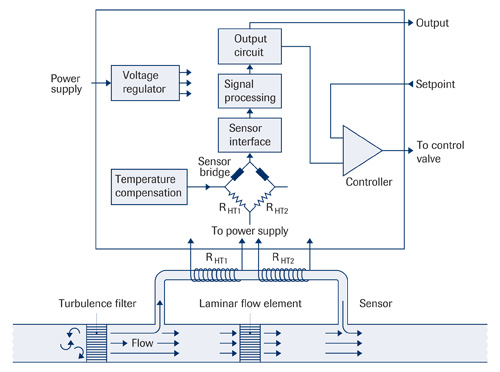It depends what you call "cheap" but a mass flow meter/controller, such as these ones, will measure the flow rate, and also control it to a set point regardless of pressure variations (for the mass flow controller). They rely on a thermal bypass to measure the flow rate:

If there is no control of the flow rate, and you're just measuring it, then any pressure change will result in a change of flow rate, it's the underlying physics and you can't avoid that.
If you just want a rough idea, putting the end of the pipe into an upturned cylinder full of water, and measuring how much volume/level the water has come down over a certain period of time, does work pretty well and gives you a good idea. Obviously, this isn't an "online" measurement, it's just a check, and it doesn't have the same level of accuracy as a mass flow meter. Again, as with any measurement technique, this will depend on the pressure.
